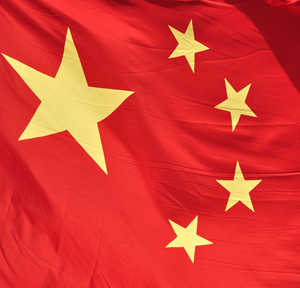Investment Strategies
Generali Wary Of China Equities Short-Term; Sees Improvement Further Ahead

Chinese equities were knocked hard by Beijing's regulatory crackdowns across a number of fronts. In the short term, Generali Investments says that it is cautious about this market, but thinks that some of the negativity towards China is overdone.
Generali Investments says that it remains cautious on Chinese equities due to uncertainties caused by Beijing’s regulatory crackdown on sectors such as technology and education, although it thinks that there is upside potential further ahead.
Like a number of other Western peers, the Italy-based group is trying to work out its asset allocation positioning following China’s moves against a number of sectors. The actions sent Chinese equities sliding a few weeks ago.
In July, the MSCI China index fell, dropping since then by 17 per cent, while less tech-heavy A-shares increased (+2 per cent). Versus the recent peak in mid-February, Chinese equities have lost 28 per cent and 2 per cent, respectively.
“Short term, we remain cautious on the MSCI China (slight underweight) amid persistent regulatory uncertainty and weaker post-pandemic growth prospects but see an upside potential in the mid-term. We favour A shares, though, because of more appealing valuations and lower regulatory pressure due to sector composition. Preferred sectors are communications/professional services, materials, utilities, consumer services and energy.
“While regulatory uncertainty and falling earnings justify a major share of the Chinese market rout, we see signs of the market’s reaction being overdone. Chinese A-shares are starting to look attractive within global equity universe,” the firm said in a note.
Explaining China’s policy moves, Generali Investments said: “High-tech and especially internet platforms have been a major focus in at least three dimensions, regarding: 1) monopolistic behaviour (curbed competition on their platforms and strategic M&A), 2) data security of personal information and national security issues of cross-border data flows, 3) flexible employees protection.
“However, China’s government also cracked down on fintech, profit school tutoring, cryptocurrency, and carbon emissions. Of late, also ‘post-work drinking,’ ‘harmful karaoke’ as well as video-gaming came under pressure which provoked some media to dub China a ‘nanny state.’ The regulations follow previous efforts regarding the deleveraging of the economy, the housing sector and local government debt,” it said.
The firm said that a “unifying theme” of Beijing’s policy is a new focus on “common prosperity,” implying a less beneficial environment for capital markets.
“After four decades of a strong focus on quantitative expansion, China has eliminated absolute poverty. According to the 14th Five-year Plan, the new stage of development pursues the goal of `common prosperity’ or `getting rich together.’ Social inequality is especially visible against the new `internet tycoons’ and President Xi called to `regulate excessively high incomes and encourage high-income groups and enterprises to return more to society.’ Antitrust, competition policies and preventing excessive private data collection are means to avoid monopoly rents,” the note continued.
